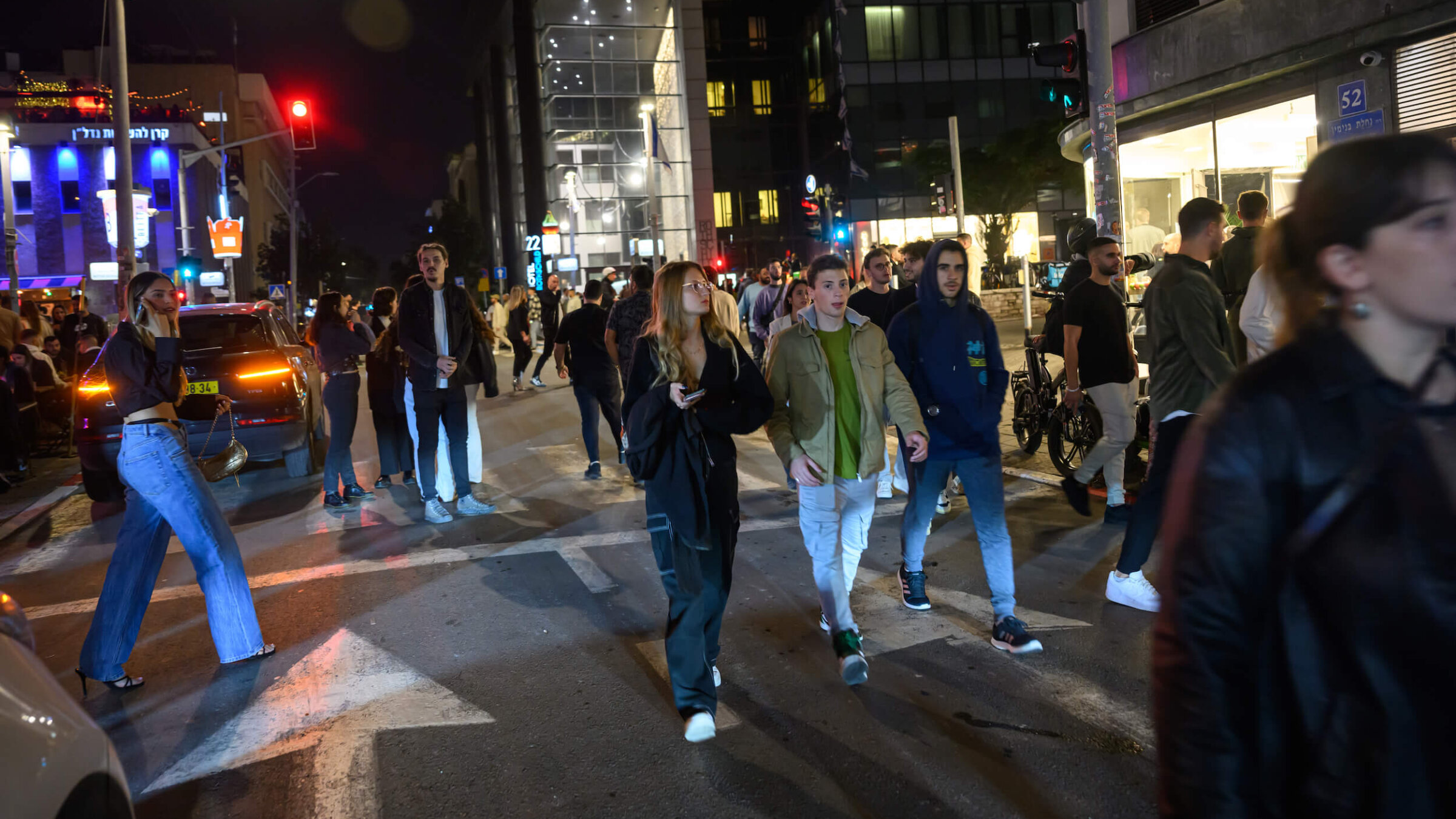‘A kangaroo court’: Israelis await Hague genocide decision with outrage, anxiety
The mood in Tel Aviv was contentious on the eve of the International Court of Justice’s first ruling on genocide charges brought by South Africa

On the eve of an International Court of Justice decision on genocide charges brought against Israel by South Africa, civilians in Tel Aviv were reluctant to discuss the matter. Photo by Alexi J. Rosenfeld/Getty Images
TEL AVIV – If the mood on the streets here late Thursday was any indication, Israelis seemed reticent to acknowledge that the International Court of Justice was set to shortly hand down a provisional ruling on genocide charges South Africa has brought against their nation.
None of Israel’s top English-language news outlets led their nighttime coverage with news of an impending decision by the global court, which is scheduled to be released at 2 p.m. local time Friday (7 a.m. ET). The expected ruling is akin to a restraining order, not a substantive determination on the charges.
Most Tel Avivians I approached to discuss the matter late Thursday said they were not interested in what the global court in the Hague has to say about Israel’s conduct in its war with Hamas. Several expressed anger at being asked about the impending decision, or the level of death and destruction wrought in response to the Hamas terror attack on Israel that killed 1,100 people on Oct. 7. (Gaza’s Hamas-run health ministry says more than 25,000 Palestinians have been killed and more than 63,740 injured by Israeli strikes, most of them civilians.)
“It’s a kangaroo court that’s just about Jewish hate,” said a man at a bus stop in the city’s south.
“We don’t need lectures on morals from the world – or from the news media,” another commuter added.
Two woman smoking at a dog park, one waiting in line at a butcher shop, and others running errands before Shabbat made similar statements.
But a teacher on her way home from work in Tel Aviv’s Neve Tzedek neighborhood said she worries that a possible ICJ ruling against Israel would further isolate her country, and hurt its legitimacy in global affairs. She was with her husband, who expressed “shame” that his country’s military has killed more than 20 times the number of Israelis who were murdered by Hamas and have died fighting back (the death toll among Israeli soldiers is about 200).
That ratio, he said, is “over the top.” But as to whether Israeli actions in Gaza should legally be considered a genocide, he said, “I doubt it,” citing the nation’s right to defend itself since the massacre in October.
The couple spoke on the condition they not be named.
The matter currently pending before the ICJ would not substantively address whether Israel has indeed committed genocide in its war in Gaza. Rather, the court is weighing whether there is reason enough to demand emergency measures aimed at halting or restricting Israel’s prosecution of the war. The options include an order that Israel not escalate military operations, cease violence all together, or allow more humanitarian aid to reach civilians.
If imposed, such a ruling would be similar a temporary restraining order in American criminal courts, a stopgap measure until a trial on the genocide question would be held, which could take years.
Whether Israel would heed such a decision is another question.
The court could also dismiss the charges, which were filed by South Africa in December and heard in the Hague over several days this month..
Lawyers for Israel argued that the charges were unfounded. On Thursday, a government spokesperson described themas “spurious and specious.” Israel also declassified military documents Thursday that it says show how the military has worked to protect civilians in Gaza from its strikes against Hamas and its networks of tunnels.
Prime Minister Benjamin Netanyau and his allies have blamed Hamas for civilian deaths in Gaza as recently as this week, when at least 12 people were killed in a strike on a United Nations facility.
The IDF says it has killed more than 9,000 operatives in Gaza, plus about 1,000 terrorists inside Israel on Oct. 7.
Meanwhile, the United Nations has warned that Gazans are facing “catastrophic hunger” en masse. Satellite imagery shows that 45% of residential buildings there have been ruined beyond repair. And, as Netanyahu continues dismissing a solution involving the creation of a separate Palestinian state, thousands of right-wing activists are scheduled this Sunday to meet in Jerusalem about aspirations to resettle Gaza after the war.






















